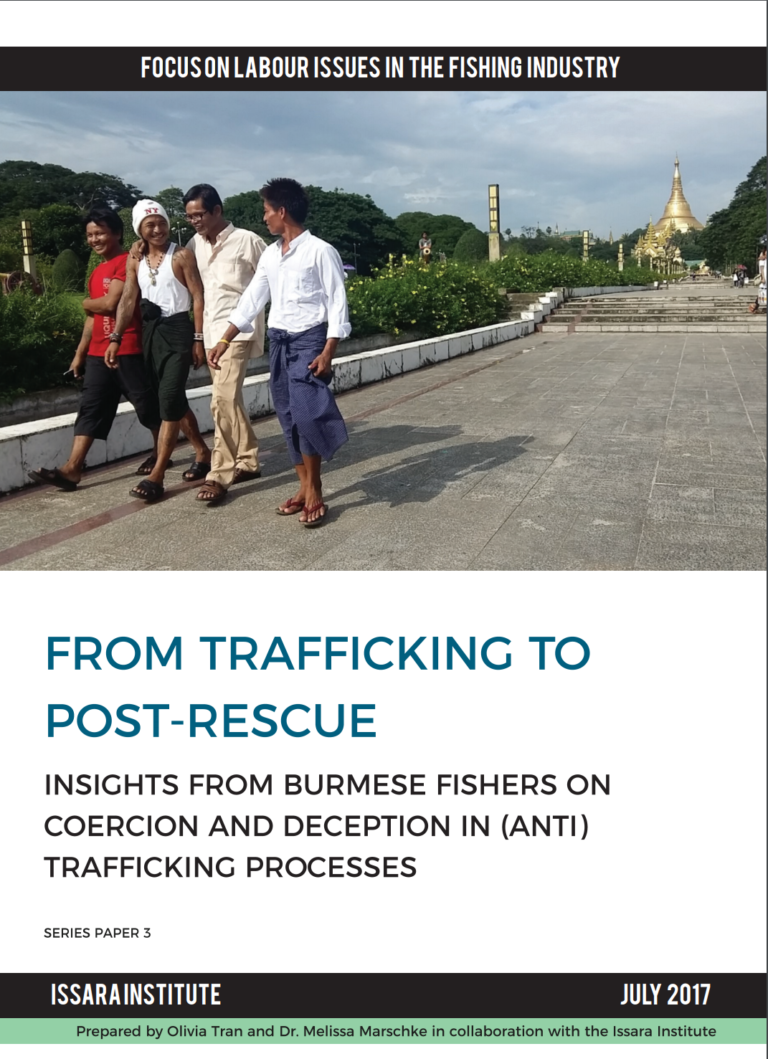This paper focuses on the experiences of Burnese men who, having been trafficked into Thailand’s offshore fishing industry, are in the process of reintegrating into Burmese society. Discussions with 15 of these men highlight how they were coerced or deceived throughout phases of their experience, from recruitment to post-rescue. While the men corroborated accounts of deception and abuse on Thai fishing vessels that have been widely reported by the media and non-governmental organizations, in-depth interviews reveal other forms of deception and coercion by anti-trafficking actors. This raises serious questions for assistance providers about the protection and reintegration of trafficked persons and highlights why it is imperative that the international community, including businesses, NGOs, and governments, pay more attention to reintegration efforts and supporting these men to rebuild their lives. Recommendations to support these men include: rethinking appropriate and more empowering assistance; providing financial compensation; and strengthening engagement of the private sector in reinterpretation activities.

